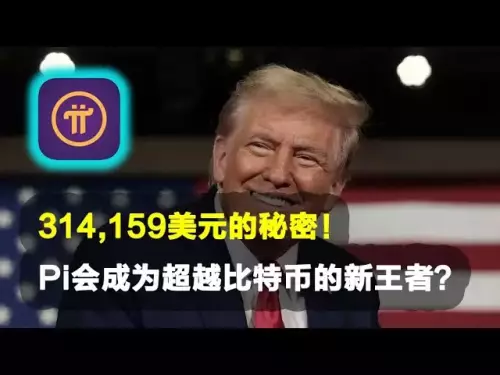 |
|
 |
|
 |
|
 |
|
 |
|
 |
|
 |
|
 |
|
 |
|
 |
|
 |
|
 |
|
 |
|
 |
|
 |
|
Cryptocurrency News Articles
Hyperliquid, USDH Stablecoin, and Native Markets: A New Era?
Sep 15, 2025 at 02:00 pm
Native Markets wins the bid to issue Hyperliquid's USDH stablecoin, sparking debates and marking a shift in DeFi governance. Get the inside scoop!

Hyperliquid, USDH Stablecoin, and Native Markets: A New Era?
Hold onto your hats, DeFi enthusiasts! The race to issue Hyperliquid's USDH stablecoin has concluded, and the results are raising eyebrows. Native Markets, a newcomer, snagged the coveted role, signaling a potential shift in how decentralized finance operates.
Native Markets Secures USDH Ticker: A DeFi Upset?
In a competition that drew heavyweights like Paxos and Frax, Native Markets, backed by co-founder Max Fiege and DeFi veterans, emerged victorious. This win grants them exclusive control over USDH, a stablecoin poised to inject billions in liquidity into the Hyperliquid exchange. It's like a David-and-Goliath story, but with more blockchain.
The USDH Proposal: What's the Plan?
Native Markets plans to issue USDH directly on HyperEVM, splitting reserves between on-chain partners like Superstate and off-chain custodians like BlackRock. A savvy move? Half of the reserve yield will fund HYPE token buybacks, while the other half supports ecosystem development. Analysts are buzzing about the potential to generate hundreds of millions annually, benefiting both the exchange community and Native Markets.
Controversy and Community Reaction: Was It a Fair Fight?
Not everyone's popping champagne. Dragonfly's Haseeb Qureshi and others voiced concerns that the vote favored Native Markets despite stronger bids from established institutions. Whispers of validator concentration and potential backroom deals circulated. However, Ethena founder Guy Young defended the outcome, calling it a true reflection of Hyperliquid's grassroots governance.
Native Markets' Next Steps: Deployment and Testing
Native Markets isn't resting on its laurels. Fiege announced the imminent deployment of both HIP-1 and ERC-20 versions of USDH. Initial testing will involve capped mint and redeem transactions of $800, followed by a USDH/USDC spot market. Circle, feeling the heat, has already announced native USDC deployment on Hyperliquid. Talk about competition!
A Turning Point for Hyperliquid and DeFi
This ruling marks a pivotal moment for Hyperliquid, aiming to reduce reliance on traditional stablecoin issuers and internalize yield. For DeFi, it showcases the power of validator-led governance, even amidst decentralization and fairness debates. As Mert Mumtaz, the CEO of Helius, suggested, this may also signal a commoditization of stablecoins, where tickers become abstracted, and exchanges handle the backend swaps.
My Take: A Bold Move with Potential Pitfalls
While Native Markets' win is undoubtedly exciting, execution is everything. The DeFi space is littered with ambitious projects that fizzled out due to security vulnerabilities, regulatory hurdles, or simply failing to deliver on promises. Native Markets needs to address the decentralization concerns head-on and ensure the stability and security of USDH to gain long-term trust.
The Future of USDH and Hyperliquid
Hyperliquid's gamble on Native Markets and USDH could pay off big time, fostering independence and driving innovation. Or, it could become a cautionary tale. Only time will tell. But one thing's for sure: the world of DeFi just got a whole lot more interesting.
So, what do you think? Is this the start of a beautiful friendship between Hyperliquid and Native Markets? Or will the USDH ticker become a symbol of unrealized potential? Let me know in the comments!
Disclaimer:info@kdj.com
The information provided is not trading advice. kdj.com does not assume any responsibility for any investments made based on the information provided in this article. Cryptocurrencies are highly volatile and it is highly recommended that you invest with caution after thorough research!
If you believe that the content used on this website infringes your copyright, please contact us immediately (info@kdj.com) and we will delete it promptly.





























































